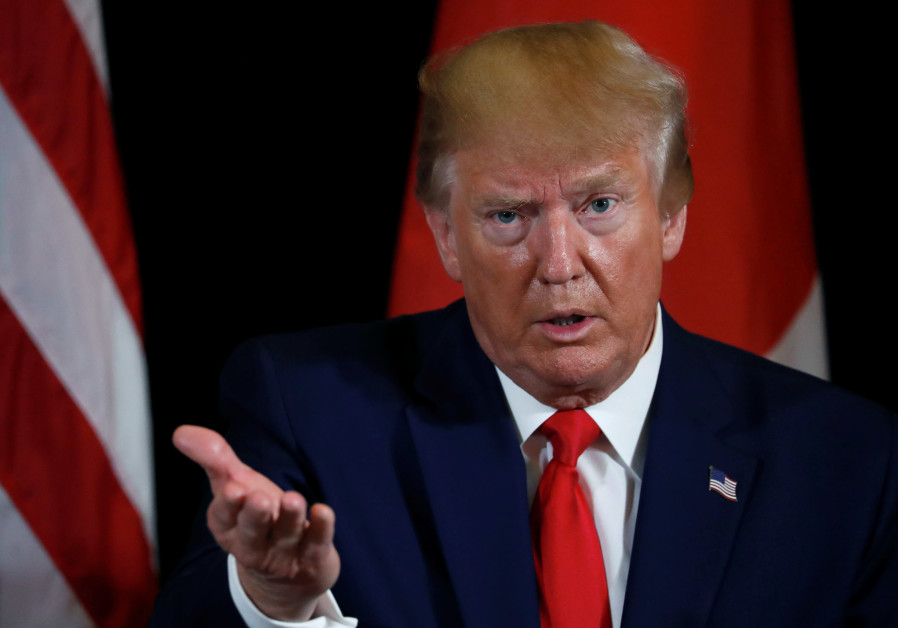Arab nations reject any Trump Israeli-Palestinian plan not on ’67 lines

U.S. President Donald Trump speaks during a bilateral meeting on the sidelines of the 74th session of the United Nations General Assembly (UNGA) in New York City, New York, U.S., September 25, 2019. (photo credit: REUTERS)
Arab nations have rejected any Israeli-Palestinian peace plan not based on the pre-1967 lines, as US special envoy Jared Kushner visited Israel and Saudi Arabia in advance of the publication of US President Donald Trump’s Deal of the Century to resolve the conflict.
In an interview with Channel 13 Tuesday night, Kushner said that the Trump peace plan offered Israel regional opportunities and was important for its security.
“Having peace with the Palestinians is a critical step if they want to have long term security in the region,” said Kushner. He is Trump’s son-in-law and the lead envoy on the plan.
On Monday at the UN Security Council, one Arab country after the other alluded to the plan, as they made statements in support of a two-state solution, which rests in part on the regional support of moderate Arab nations.
Earlier this year Kushner stated that the plan would part from past initiatives, including the 2002 Arab Peace Initiative, endorse by the Arab League. It offered Israel normalized ties in exchange for a two-state solutions at the 67 lines with minimal, undefined, territorial swaps.
It is widely believed that Trump’s plan would allow Israel to retain all its West Bank settlements, where some 430,000 of its citizens live.
Kushner told Channel 13 that both Israelis and Palestinians would need to make compromises, but he gave no more specifics during the interview.
At the UNSC in New York Jordan, Egypt, Bahrain, Kuwait, Qatar, Saudi Arabia, Morocco, the Arab League and the Organization of Islamic Cooperation all spoke of the importance of a two-state solution at the 67—line and a peace plan that fell in line with past international understandings. All of Israel’s government since the Six-Day War have rejected a return to the pre-1967 lines, which were considered to be suicide borders.
Saudi Ambassador to the UN Abdullah al-Mouallimi told the UNSC that the Palestinian people were suffering under one of the most “heinous forms of occupation in our modern history.”
The Saudi envoy continued, “We believe that the Palestinian question is the key for the stability of the region. Any solution must be based on the two-state solution in line with international terms of reference and the Arab Peace Initiative of 2002, which calls for establishing a Palestinian state with the borders of 1967 with Jerusalem as its capital,” al-Mouallimi said.
Bahrain’s Ambassador Jamal Fares Alrowaiei similarly told the UNSC that his country also favored a solution based on the pre-1967 lines.
In June his country hosted a US led economic workshop that focused on financial solutions for the Palestinians.
On Monday Alrowaiei said, “a just comprehensive and lasting peace in the region can not be achieved without resolving the Palestinian question and without granting the Palestinian people its legitimate right, similarly to other peoples, to establish its independent state along the borders of 1967 with east Jerusalem as capital in line with the Arab Peace Initiative and relative international solutions.”
The “kingdom will spare no effort to ensure the development and the prosperity of the Palestinian people. The international community must also assume its responsibilities and compel Israel to implement all relevant international resolutions,” he said.
`; document.getElementById(“linkPremium”).innerHTML = cont; (function (v, i){ });





Comments are closed.